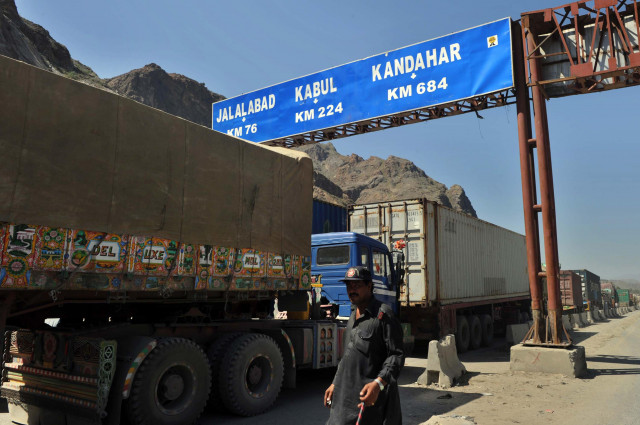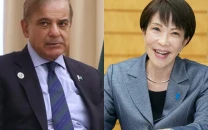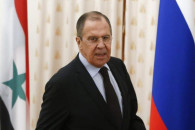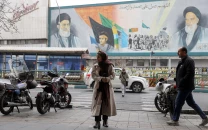US sees no early reopening of NATO supply route through Pakistan: Report
Observers view differences over backlogged CSF payments, and new port tariffs as hurdles to a quick resolution.

The Obama administration remains locked in negotiations with Pakistan to reopen the key supply routes into Afghanistan, and officials do not expect talks bogged down over proposed tariffs and US military assistance to reach resolution anytime soon.
The continued closure of ground routes, which Islamabad shut after two dozen of its soldiers were killed by NATO aircraft in a November raid, poses one more challenge to US President Barack Obama's already troubled campaign in Afghanistan.
A deal is almost certainly impossible before May 20-21, when Obama will host a NATO leaders conference in his hometown of Chicago. There, Western leaders will define plans for moving out of Afghanistan and for funding local troops they hope can contain a resilient insurgency when NATO withdraws.
A US defense official, speaking on condition of anonymity, said that talks in Islamabad between Pakistani and US officials on supply routes, were continuing this week, but "no decisions are imminent."
"There's value in continuing to have those discussions, but there's no sense those talks are going to turn into decisions" shortly, the official said.
A deal would require agreement on Pakistan's proposal to impose tariffs on NATO supplies, including how tariffs would be formulated, where that money would go, and how the West would ensure those funds were being used appropriately.
Another issue stalling the talks is disagreement over how much the United States should reimburse Pakistan for counter-terrorism activity by Pakistani forces.
The United States believes it owes Pakistan about $1 billion in arrears for that program, called Coalition Support Funds, while Pakistan contends the figure is much higher, almost three times as much. The Pentagon has approved over $8.8 billion in military reimbursements for Pakistan since 2002.
New Arrangement
Once those arrears have been paid, both countries appear to want to set up a new arrangement for providing US financial support for Pakistan's anti-militant activities.
Pakistan's supply routes have been closed since the November 26 cross-border NATO air attack that killed 24 Pakistani soldiers and plunged already tumultuous ties between the two uneasy allies to their lowest point in years.
Before their closure, the two land supply routes through Pakistan accounted for just under a third of all cargo that the NATO-led force in Afghanistan shipped there. The closure has held up thousands of tons of equipment.
Pakistan has said it will impose new tariffs on ports and roads used by NATO, in part to express Pakistani outrage over the border deaths and in part to shore up funding for its fight against militants that target the Pakistani state.
The Pentagon says the route closure has not yet had a real impact on the fight in Afghanistan. "Obviously it gets more challenging as we get closer to 2014," the US official said, when most foreign combat troops will make their way home.
In a report released this week, the Defense Department warned that a prolonged closure of the supply routes could "significantly degrade" withdrawal operations as NATO nations try to establish a modicum of stability in Afghanistan before most of their troops pull out at the end of 2014.
While the Taliban has been pushed out of some areas since 2009, when Obama began a troop surge designed to turn around a long-neglected war, the insurgency remains resilient.
The talks come as the Obama administration tries to repair ties with Pakistan also damaged by US drone strikes in Pakistani tribal areas and the US raid that killed al Qaeda leader Osama bin Laden in Pakistan last year.
They also come at a sensitive moment in Pakistan, where the parliament has approved recommendations from its national security committee on ties with the United States, including a demand to end drone strikes and an apology for the soldiers' deaths as one of the conditions for resuming the supply route.
"Certainly the domestic situation in Pakistan has a role to play" in the negotiations, the US official said.


















COMMENTS
Comments are moderated and generally will be posted if they are on-topic and not abusive.
For more information, please see our Comments FAQ